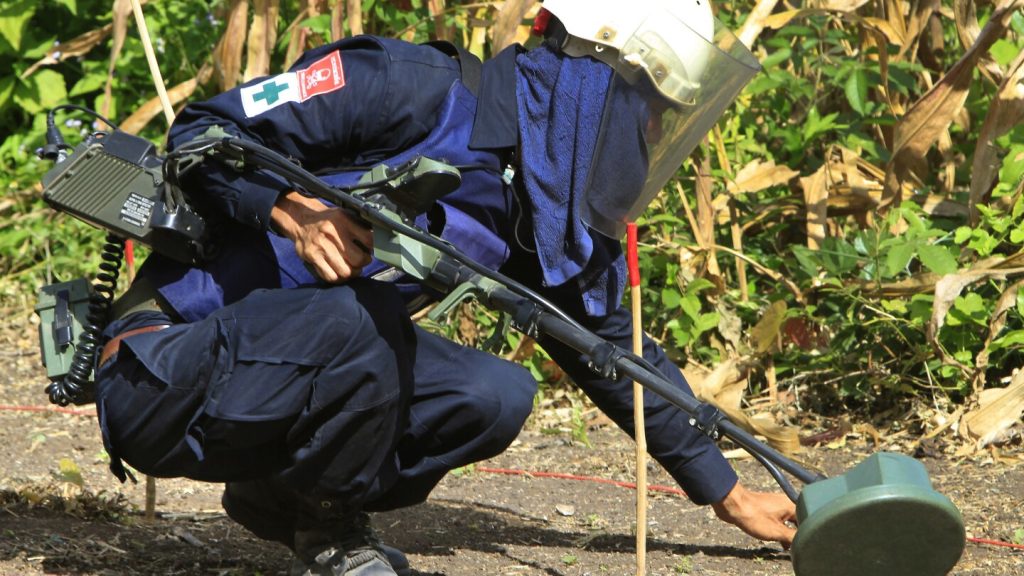Cambodia continues to suffer from the deadly legacy of decades of war, as two separate explosions from unexploded munitions recently killed five people and injured two others. The country is estimated to have 4 to 6 million landmines and other dangerous remnants of war scattered across its countryside, posing a significant threat to civilians. In one incident, four members of a family collecting resin in a forest were killed when a grenade exploded from a handheld rocket launcher. Another man was killed by an artillery shell while working as a sand dealer in the southern city of Sihanoukville. Despite ongoing demining efforts, these tragic accidents continue to occur.
The International Campaign to Ban Landmines reported that Cambodia has 7,392 suspected hazardous areas covering 681 square kilometers, indicating the widespread presence of dangerous munitions. The Cambodian Mine Action and Victim Assistance Authority stated that there have been 65,043 casualties, including 19,822 deaths, caused by landmines and explosive remnants of war from 1979 to 2024. While the number of casualties has decreased compared to previous years, the threat remains significant, with an average of 37 casualties recorded annually from 2021 to 2023.
Cambodia’s demining efforts have been extensive, with the country’s deminers being among the most experienced in the world. Thousands of Cambodian deminers have been deployed under U.N. auspices to assist with demining operations in Africa and the Middle East. In a display of solidarity and shared experience, Cambodia has also been training deminers from Ukraine, which faces similar challenges with landmines and unexploded munitions. This cross-border collaboration highlights the global nature of the issue and the need for collective action to address the threat posed by these deadly remnants of war.
The recent explosions serve as a tragic reminder of the ongoing danger faced by Cambodian civilians due to the presence of landmines and unexploded ordnance. Despite efforts to clear these hazardous areas, the sheer volume of munitions remaining in the country’s countryside continues to pose a significant risk to the population. The Cambodian government and international organizations continue to work towards the goal of making the country free from landmines, but the process is challenging and time-consuming.
The incidents in Mondulkiri and Sihanoukville highlight the indiscriminate nature of landmines and unexploded ordnance, which can cause devastation and loss of life without warning. Civilian casualties remain a tragic consequence of Cambodia’s turbulent past, with innocent individuals paying the price for conflicts that have long ended. The need for continued vigilance and support for demining efforts is crucial to prevent further tragedies and ensure the safety and security of Cambodia’s population.
As Cambodia grapples with the persistent threat of landmines and unexploded ordnance, the international community must continue to provide assistance and resources to support the country’s demining efforts. The collaboration between Cambodia and other affected nations, such as Ukraine, illustrates the shared commitment to addressing this global issue. By working together and raising awareness about the dangers of landmines, progress can be made towards creating a safer environment for the people of Cambodia and other nations affected by these deadly remnants of war.


